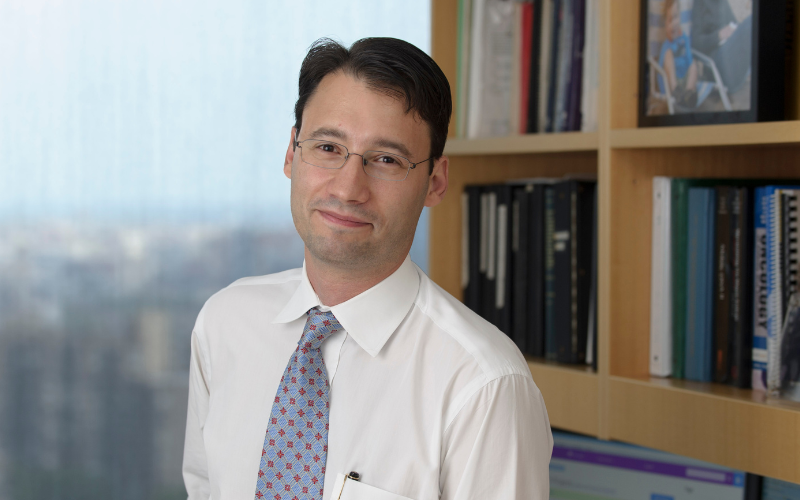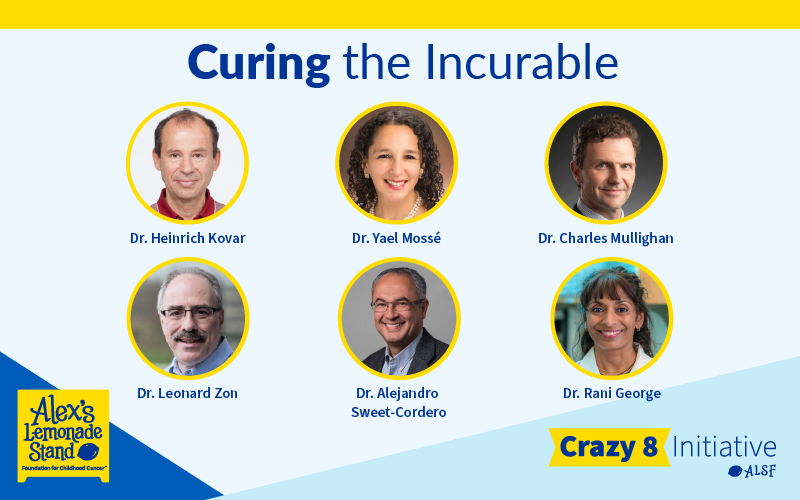The Childhood Cancer Blog
The Childhood Cancer Blog
Science to advance treatments for children with cancer has made incredible strides, but the causes of genetic mutations that lead to the development of cancer are still poorly understood. Alex’s Lemonade Stand Foundation (ALSF)-funded researcher Alex Kentsis, MD/PhD, of Memorial Sloan-Kettering Cancer Center in New York, and his lab are investigating those fundamental causes, to find cures for all childhood cancers. Recently, he’s made a breakthrough discovery about solid tumor development that has led to a clinical trial.
Cancer is driven by abnormal changes (also known as... Read More

“Solving childhood cancer is a really big goal and it takes a lot of innovative thinking, but it also requires a lot of collaboration – a lot of sharing of knowledge,” said Liz and Jay Scott, ALSF’s co-executive directors and Alex’s parents. “And the wonderful thing about the Childhood Cancer Data Lab is that's exactly what it's designed to do.”
Since 2017, the Childhood Cancer Data Lab has been a key player in the advancement of childhood cancer research. Their mission is to provide pediatric cancer experts with the knowledge, data, and tools to reach their scientific goals. Now, Alex’s Lemonade Stand Foundation (ALSF)’s Data Lab is celebrating five years of empowering scientists to find cures for kids with cancer.
“Solving childhood cancer is a really big goal and it takes a lot of innovative thinking, but it also requires a lot of collaboration – a lot of sharing of knowledge,” said Liz and Jay Scott, ALSF’s co-... Read More
The treatment for osteosarcoma, one of the most common types of pediatric sarcoma of the bone, has remained unchanged for 40 years.
And while conventional methods (chemotherapy, surgery and more chemotherapy) work for some children with osteosarcoma, the disease spreads from the primary site in the bone to the lungs. Once this happens, there is no standard of care and survival rates dip from 60% to 30%.
Families are left with limited options and experimental clinical trials.
The problem is the same with other types of childhood cancer — from neuroblastoma to... Read More
Pages




